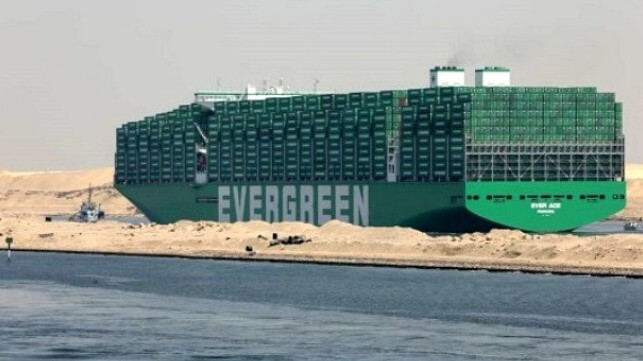Container Lines Eye a Less Profitable Future With Calm in Red Sea

The world's top container carriers and their investors are warily eyeing a return to the Red Sea-Suez route after a year of profitable disruption - but the return will not happen quickly, executives and maritime security advisors say.
Beginning in late 2023, Houthi attacks gradually forced most liners to reroute around the Cape of Good Hope, adding weeks to each voyage and boosting ton-mile demand. As carriers pulled in every available ship to cover the extra time and distance on Asia-Europe routes, a looming overcapacity problem evaporated, replaced by an unexpectedly tight market and a boom in freight rates. As a result, carriers have had a profitable year - but there are revenue challenges ahead.
Thanks to a ceasefire in Gaza, Houthi leaders have pledged to halt attacks on shipping. In expectation that liners may soon have to return to the Red Sea to remain competitive, analysts have downgraded the stocks of some ocean carriers in expectation of overcapacity and falling rates. Investors have already begun reducing exposure to the ocean freight segment in anticipation of lower earnings ahead.
Blue-chip operator Maersk, the largest publicly-traded carrier, has lost about a tenth of its share price since the first rumors of a Gaza ceasefire emerged earlier this month. Jefferies has downgraded its rating to hold. Hapag-Lloyd, Maersk's partner on the Gemini Cooperation network, has also shed about eight percent of its share price since the start of the year.
Israeli-owned carrier Zim, which sustained Israel's maritime logistics throughout the Gaza operation, has seen its stock slide by about a quarter since early January. Jefferies has lowered its price target for Zim, but kept its hold rating on the firm's shares.
There is still no certainty about whether the Houthis will uphold their Red Sea truce pledge, which hinges in part on the progress of peace negotiations between Israel and Hamas. Houthi leaders have promised to watch Israel's implementation of the Gaza ceasefire carefully, and to resume attacks on Western shipping if fighting in the territory resumes. The truce also hinges on whether the U.S. and UK resume airstrikes on Houthi targets - another factor outside of the shipping industry's control.
"Merchant vessels continue to be at risk due to fragility of the ceasefire and potential for Houthi subjectivity resulting in singular attacks," cautioned UK maritime security consultancy Ambrey. "A reduction of risk to shipping is assessed almost certain to occur gradually."
